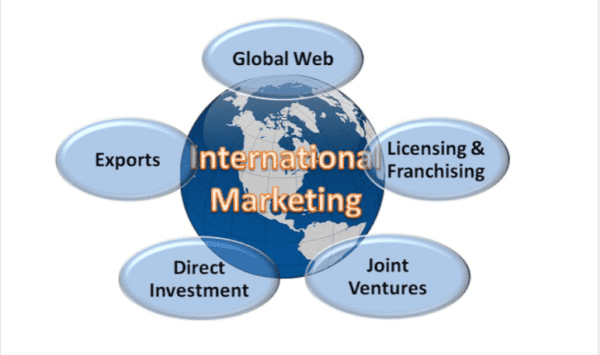If you want to start a tech startup, you’ve probably heard of Silicon Valley. It’s home to some of the world’s most successful tech companies, including Google, Facebook, and Apple. But you might not know that Silicon Valley is also home to some of the best accelerators in the world.
Accelerators are programs that help startups grow and succeed. They typically provide mentorship, funding, and other resources to help startups get off the ground. High-performing accelerators in Silicon Valley have a reputation for helping startups succeed. If you want to start a tech company, joining an accelerator can be a great way to get the support you need.

Evolution of Silicon Valley
Silicon Valley is a globally recognized hub of innovation and technology, but it hasn’t always been that way. In the early 1900s, Silicon Valley was primarily known for its vast orchards and farmland. However, with the rise of technology in the mid-20th century, the region began to transform into the tech hub we know today.
From Orchards to Tech Hub
The transformation of Silicon Valley began with the establishment of companies such as Hewlett-Packard and Fairchild Semiconductor. These companies were instrumental in developing the region’s electronics industry and laying the foundation for the technology boom that was to come.
As more and more technology companies began to set up shop in the area, Silicon Valley’s reputation as a hub of innovation grew. Today, the region is home to some of the world’s most successful tech companies, including Apple, Google, and Facebook.
Rise of Startup Culture
In recent years, Silicon Valley has become synonymous with startup culture. The region is home to many startup accelerators, which provide support and resources to early-stage companies and have been instrumental in helping startups grow and succeed.
A spirit of innovation and risk-taking characterizes the startup culture in Silicon Valley. Entrepreneurs in the region are encouraged to think outside the box and to take bold steps to bring their ideas to life.
Overall, Silicon Valley’s evolution has been driven by a combination of factors, including the region’s natural resources, proximity to major universities, and culture of innovation. Today, Silicon Valley remains at the forefront of the technology industry and is a significant innovation and economic growth driver.

Key Components of Accelerators in Silicon Valley
Regarding high-performing accelerators in Silicon Valley, a few key components set them apart from other startup support programs. These components include mentorship and support, funding and investment, and networking opportunities.
Mentorship and Support
Mentorship and support are among the most critical components of a successful accelerator. Accelerators provide startups access to experienced mentors who can guide them through the challenges of building a successful business. These mentors can advise on everything from product development to fundraising and marketing strategy.
Mentorship and support can take many forms, including one-on-one meetings, group workshops, and networking events. Accelerators typically have a network of mentors with diverse backgrounds and expertise, allowing startups to get advice from various perspectives.
Funding and Investment
Another critical component of accelerators is funding and investment. Many accelerators provide startups with seed funding to help them get off the ground. This funding can come from equity investments, grants, or loans.
In addition to providing funding, accelerators often help startups prepare for future fundraising rounds. They may offer pitch coaching, investor introductions, and other resources to help startups secure additional financing.
Networking Opportunities
accelerators provide startups with valuable networking opportunities. These programs typically bring together a cohort of startups, which allows founders to connect with and learn from one another. Accelerators also host events and introduce startups to potential customers, partners, and investors.
Networking opportunities can be precious for startups new to the Silicon Valley ecosystem. By connecting with other founders and industry experts, startups can gain valuable insights and build relationships to help them succeed in the long term.
High-performing accelerators in Silicon Valley provide startups with mentorship and support, funding and investment, and networking opportunities. These components are essential for helping startups navigate the challenges of building a successful business.

Success Factors for Startups
When achieving success as a startup, actors can contribute to our ability to innovate, develop an effective business strategy, and adapt to changing circumstances. Here are some key success factors that high-performing accelerators in Silicon Valley focus on to help their startups thrive.
Innovative Product Design
One of the most critical success factors for startups is the ability to develop an innovative product that stands out in the market. This requires a deep understanding of customer needs and preferences and a willingness to experiment with new ideas and approaches. High-performing accelerators often provide startups with mentorship, resources, and networking opportunities that can help them develop a more innovative product design.
Effective Business Strategy
In addition to innovative product design, startups need an effective business strategy to succeed. This includes clearly understanding the market landscape, target audience, and competition and a plan for generating revenue and scaling the business over time. High-performing accelerators often provide startups with guidance and support in developing and refining their business strategy and access to funding and other resources that can help them execute their plan.

Adaptability and Learning
To achieve long-term success, startups must be adaptable and willing to learn. This means pivoting quickly in response to changing market conditions, customer feedback, and other factors and having a culture of continuous learning and improvement. High-performing accelerators often provide startups with access to mentorship, training, and other resources that can help them develop the skills and mindset needed to adapt and learn over time.
Several success factors can contribute to startups’ innovativeness, developing an effective business strategy, and adapting to changing circumstances. By focusing on these critical factors and leveraging the resources and support provided by high-performing accelerators, startups can increase their chances of achieving long-term success in Silicon Valley and beyond.
Silicon Valley’s Global Influence
Silicon Valley has been a hub of innovation and entrepreneurship for decades, and its influence extends far beyond California’s borders. With its unique ecosystem of startups, investors, and accelerators, Silicon Valley has significantly impacted international markets and cross-border collaboration.
Impact on International Markets
Silicon Valley has significantly shaped the global market. The region’s startups have disrupted industries and created new markets, from ride-sharing to social media. As a result, Silicon Valley has become synonymous with innovation and has attracted entrepreneurs and investors worldwide.
The region’s startups have also succeeded in expanding their reach beyond the United States. Companies like Google, Facebook, and Apple have become household names worldwide, and billions use their products and services. This global reach has helped establish Silicon Valley as a tech industry leader and created opportunities for collaboration and investment across borders.

Collaboration Across Borders
Silicon Valley’s influence extends beyond the products and services created by its startups. The region’s accelerators, investors, and industry experts ecosystem has created a global collaboration network. This network has helped connect entrepreneurs with investors, mentors, and partners and has facilitated the exchange of ideas and expertise.
Accelerators in Silicon Valley, such as Y Combinator and 500 Startups, have played a significant role in this network. These accelerators provide startups with funding, mentorship, and resources to help them grow and scale their businesses. They also offer opportunities for startups to connect with investors and partners worldwide.
Silicon Valley’s global influence has been significant, helping shape the tech industry as we know it today. Its impact on international markets and collaboration across borders has created opportunities for entrepreneurs and investors and helped establish the region as a leader in the tech industry.
Future Trends in Acceleration
As high-performing accelerators continue to shape the future of entrepreneurship, it’s essential to keep an eye on emerging trends that will impact the industry. Here are two areas to watch in the coming years:

Artificial Intelligence Integration
Artificial Intelligence (AI) is already transforming how we live and work, and it’s poised to play an even more significant role in accelerating progress. By leveraging AI, accelerators can help founders gain insights into their target markets, optimize their operations, and make data-driven decisions.
One way this could play out is by using AI to analyze large datasets and identify patterns that would be difficult for humans to detect. This could help startups better understand their customers, competitors, and industry trends and make more informed decisions about how to grow their businesses.
Another potential application of AI in accelerators is mentor matching. By analyzing mentors’ and founders’ skills, experience, and personalities, AI algorithms could help match them more effectively, leading to more successful mentorship relationships and, ultimately, more successful startups.
Health Tech Advancements
Health Tech is another area ripe for disruption, and high-performing accelerators are well-positioned to take advantage of this trend. With the rise of digital health platforms, wearables, and other technologies, startups have numerous opportunities to improve healthcare outcomes and reduce costs.
Accelerators can help these startups by providing access to mentors with expertise in the healthcare industry and them with potential customers and investors. Additionally, accelerators can help startups navigate the healthcare industry’s complex regulatory landscape and be a significant barrier to entry for many entrepreneurs.
One area of particular interest in Health Tech is the use of telemedicine and remote monitoring technologies. By enabling patients to receive care from their homes, these technologies have the potential to reduce healthcare costs and improve patient outcomes dramatically. Accelerators focusing on Health Tech are well-positioned to help startups navigate the regulatory landscape and bring their products to market.

Overall, the future of acceleration is bright, with emerging technologies like AI and Health Tech poised to revolutionize the industry. By staying up-to-date on these trends and incorporating them into their programs, high-performing accelerators can continue to drive innovation and help entrepreneurs bring their ideas to life.
